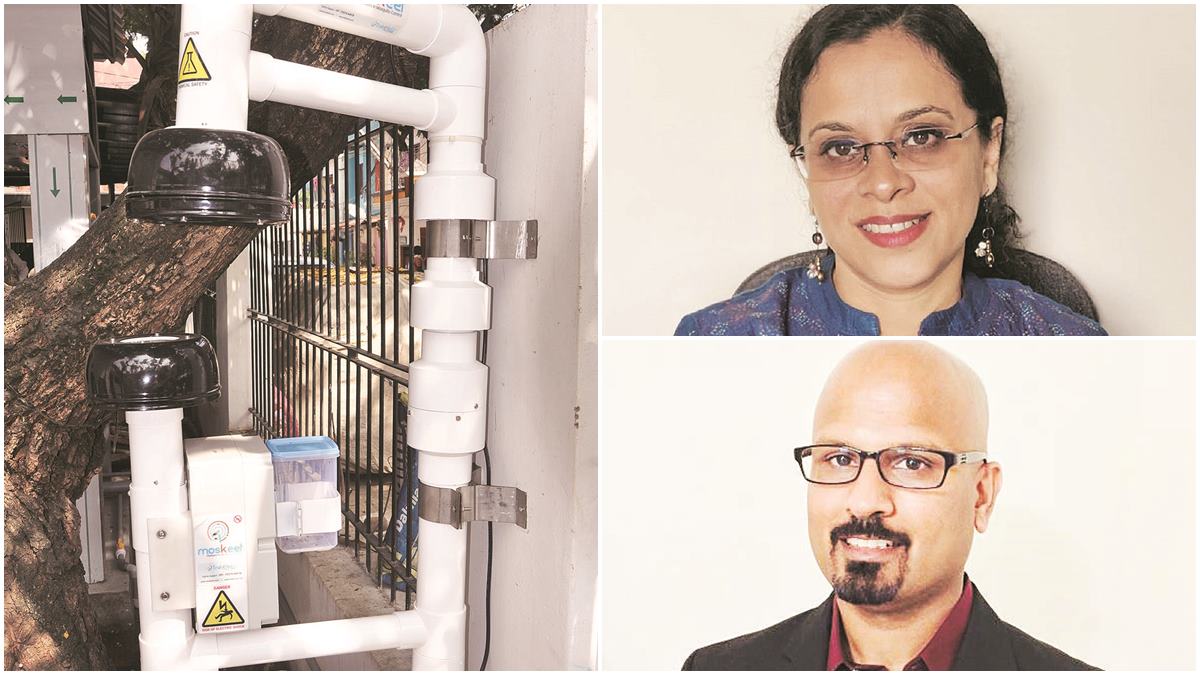
Mosquito-borne diseases affect 40 million people every year, and 95% of the population in India reside in malaria endemic areas. While the government has deployed several measures to curb this menace, what is essentially needed is an innovation which is affordable, scalable, and targets vector-borne diseases with precision.
India Health Fund (IHF)-funded TrakItNow, a technology company in the space of public health, has come up with the world’s first smart mosquito control management solution – Moskeet – which uses the Internet of Things (IoT), Artificial Intelligence (AI), and data, to help in early control, limited spread, and eventual eradication of mosquito-borne diseases. The technology can count the number of mosquitoes, identify its gender, and distinguish at least 10 types of mosquito species while gathering data 20 times faster, three times more accurately, and at 15% of the current cost of existing manual methods.
“Moskeet is an intelligent surveillance solution to classify and predict mosquito-borne disease outbreaks,” says Jayeeta Chowdhury, programme director, India Health Fund (an initiative by Tata Trusts). She says that mosquito is the most dangerous animal due to its ability to transmit vector-borne diseases like malaria, dengue and Zika. “In India alone, there were roughly 5.6 million cases of malaria in 2019. Dengue fever is the world’s fastest growing vector-borne disease, with India being home to 34% of world-wide dengue infections.”
Also Read: Tele-Health Innovation: AI and IoT as enablers for patient safety and clinician efficiency
According to her, most vector-borne diseases can be controlled only through an integrated approach that includes surveillance, vector control, early case detection and prompt treatment, and health awareness and personal protection. Currently, vector surveillance depends on manual methods to catch, collect, count and classify mosquitoes, and requires expert entomologists for analysis and reporting. The delay caused by manual processes and the shortage of entomologists makes timely vector control activities difficult to implement.
Here comes Moskeet, said to be the world’s first commercially available smart mosquito trap that can autonomously identify and count a broad spectrum of mosquito species based on their wing beat frequencies using artificial intelligence and Internet of Things (IoT). “By transmitting live data to central surveillance centres, Moskeet enables effective vector surveillance, determines hotspots in real time and ensures fast and efficient management of malaria, dengue, chikungunya, Japanese encephalitis and Zika virus,” says Satish Cherukumalli, co-founder & CEO, TrakItNow.
The deployment of Moskeet started in 2019. “So far, Moskeet is deployed in five cities in India: Thiruvananthapuram, Kerala; Vijayawada, Andhra Pradesh; Hyderabad, Telangana; Yanam, Puducherry; and Panaji, Goa,” he says. He feels that AI/ML has enabled real-time surveillance of mosquitoes in a cost-effective way. Moskeet uses sensors in the trap to collect data about the mosquitoes which is then sent to the cloud servers via a cellular network. AI/ML algorithms then analyse this data to determine the species. The mosquito surveillance data is combined with disease occurrences, breeding sites, weather data, human population, etc., to predict an outbreak of diseases.
“Now that Moskeet has successfully been piloted in several cities, the plan is to raise awareness among policy makers on the efficacy and impact of this technology,” Cherukumalli says. A recent enhanced version of the Moskeet trap was released at a reduced cost, this will allow for increased scalability.
India Health Fund, TrakItNow and partners are working with smart cities, local governments and also private residential communities / commercial campuses to maximise impact and integration into public programmes. TrakItNow has also signed agreements with partners in South East Asia — Philippines and Singapore and an MoU with the South African Medical Research Council in South Africa. Furthermore, Moskeet has recently been approved and listed in the UNDP’s Digital X Catalog, which will help to increase awareness about Moskeet in 170 UNDP country offices.
THE PROBLEM & THE CURE
Mosquito-borne diseases infect 40 million people every year
In India, there were 5.6 million cases of malaria in 2019
Moskeet enables integrated management of mosquito control strategies
Gathers data 20 times faster, 3 times more accurately, and at 15% of the current cost of existing manual methods